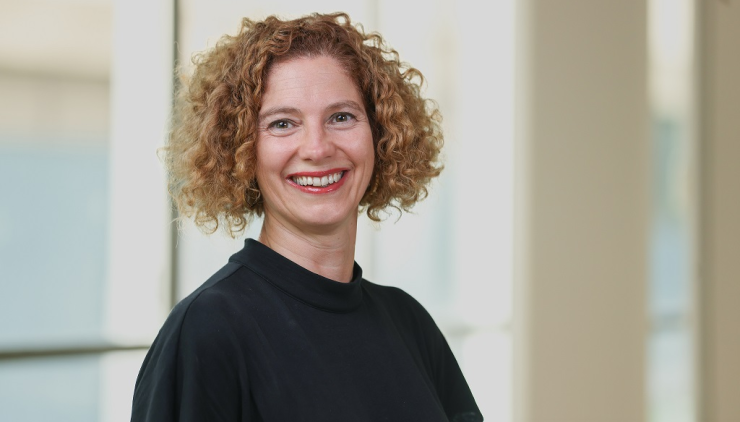-
26 februari
-
Wendbaar
9 development tips from the 'World of Sofie'

Are you and your team managing well with all the changes in our work? Developments in education, research and organization are rapid. It is sometimes difficult to adapt each time. For Sofie Moresi, program leader Agile Professionals and associate professor, this is also a continuous challenge. Based on her research and insights, she provides nine accessible development tips. Read and go.
"I have gained the most experience in the different kitchens of the many institutes I get to look around. There you see that the same educational processes can also be approached differently or work with other ways of organizing'.
1. Realize
Realize that learning and development is not just about attending a training, course or longer education. But that most learning is in your everyday work. For example, read a TNO study on informal learning here.
2. Aha-learning moment
Regularly check with yourself: what was a small "aha" learning moment for you. Think about: what surprised you today, what made you think, where did you learn something, what touched you and why? For example, researcher Manon Ruijters follows Claxton's definition around learning, Sofie points out. 'The things you do, when you don't know what to do'. You learn precisely when you are in unfamiliar territory. When you have to travel to an address you don't know, when you have to lead a project for the first time or when a student asks you something you don't know the answer to. More on this in this paper from Zestor.
Translated with DeepL.com (free version)
3. Share
Sometimes these insights also only come to life when you share and discuss them with a colleague. Do that! And ask about his/her perspective. Listen to this without reacting immediately, what does that bring you? Are you familiar with the Fontys Ontwikkelcafé? During a half day you actively work on your own development, together with colleagues. Want to know more? Click here (Dutch info).
4. Question
Often in a consultation (or similar moment) a question always comes to you. Do you usually swallow it? If so, challenge yourself to ask it and stay curious! Fontys colleague Danae Bodewes wrote the book 'Schaamteloos Nieuwsgierig' (in Dutch). Highly recommended reading for more motivation and engagement.
5. Mild
Clue maybe, but we are so quick to judge these days.... So give yourself and your colleagues room to approach things differently. And remember: mistakes are allowed. We allow our students that too. Sofie recommends an interesting video on psychological safety. Watch the short interview with Ben Tiggelaar (behavioral scientist and speaker on leadership) on this important topic here.
6. Feedback
Tip 5 is not a licence to do anything. Give feedback. And just as important: when was the last time you asked for feedback? And did you know that this can be done very easily via the Fontys feedback app (Dutch info)?
7. Rest
Our days are often filled to the brim. Give yourself regular breaks so that you stay fresh. And have time for rest, meeting (and coffee). And for example, download 'Break Timer' in Google Chrome or Microsoft Edge. An 'extension' that supports you in taking short breaks.
8. Priority
Did you know that everyone who works at Fontys has expertise promotion hours? So you can use those for your development. In my experience, there is never time for it, but if you like something, make it a priority. So discuss your wishes with your manager, and you will see that a lot really is possible. Read more about the development interview at Fontys here (Dutch info).
9. Go!
And yes, if you already have a clear development wish or idea, check the P&O Portal to see how Fontys can support you. And also check out the development opportunities on Fontys Hub. Found something or have questions? Share that with your manager or HR contact and go!‘Ik heb de meeste ervaringen opgedaan in de verschillende keukens van de vele instituten waar ik mag rondkijken. Daar zie je dat dezelfde onderwijsprocessen ook anders aangevlogen kunnen worden of dat er gewerkt wordt met andere manieren van organiseren’.
